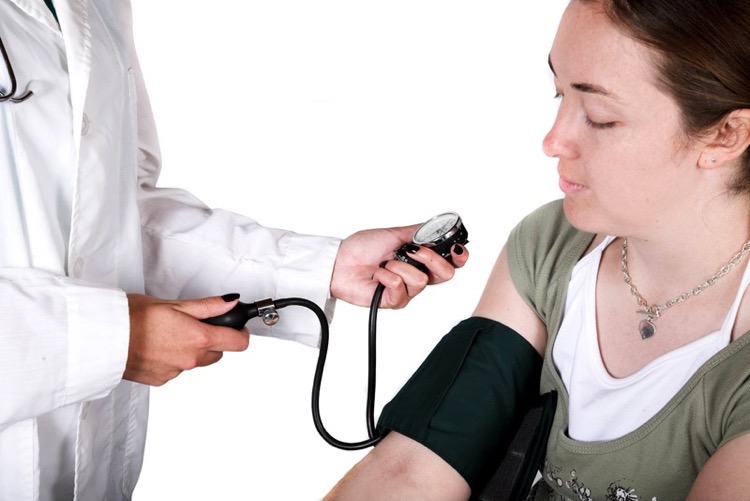MinuteClinic Makes It Easy to Go Back to School
This is a sponsored post. All opinions are mine.

It’s that time of year again! Time to head back to school! With heading back to school comes the purchase of clothes and school supplies, as well as preparing our students health wise. Part of getting our kids ready for school health wise includes getting back to school vaccinations and getting physicals. MinuteClinic can help!
Back to School Vaccinations
- Meningitis
- Pertussis
- HPV
General Meningitis Information:
Meningitis is an inflammation (swelling) of the protective membranes covering the brain and spinal cord known as the meninges. This inflammation is usually caused by an infection of the fluid surrounding the brain and spinal cord. Meningitis is usually caused by bacteria or viruses, but can be a result of injury, cancer, or certain drugs. It is important to know the specific cause of meningitis because the treatment differs depending on the cause. Bacterial meningitis is spread from person to person. The bacteria are spread by exchanging respiratory and throat secretions (saliva or spit) during close (for example, coughing or kissing) or lengthy contact, especially if living in the same household. If you have close contact with a person who has viral meningitis, you may become infected with the virus that made the person sick. However, you are probably not likely to develop meningitis from the illness. That’s because only a small number of people who get infected with the viruses that cause meningitis will actually develop meningitis.

Meningitis Vaccine Information:
The meningitis vaccine protects against meningococcal disease, which is a serious bacterial illness. Many colleges and boarding schools require it to protect students living in dorms. It is recommended that 11–12 year olds be vaccinated with meningococcal conjugate vaccine with a booster dose given at age 16.
How MinuteClinic Helps:
At MinuteClinic, our practitioners will:
1. Review the Vaccine Information Sheet.
2. Your practitioner will administer the vaccine.
3. At the end of your visit, your practitioner will provide you with a summary, a receipt and educational material.
4. The summary of your visit can be sent to your primary care provider with your permission.
5. Your practitioner will recommend that you remain in the clinic waiting area for 20 minutes to ensure you have no adverse reactions. Practitioners are trained to respond to anaphylactic reactions.
What to Know Before Your Visit
• Patients must be 19 years or older in Connecticut, and 11 years or older in Kentucky.
• This service is not available to pregnant women.
• Patients with a history of allergy or adverse reactions to the vaccine may be directed to another health care provider.
General Pertussis Information:
Pertussis, also known as whooping cough, is a highly contagious respiratory disease. It is caused by the bacterium Bordetella pertussis. Pertussis is known for uncontrollable, violent coughing which often makes it hard to breathe. After fits of many coughs, someone with pertussis often needs to take deep breaths which result in a “whooping” sound. Pertussis can affect people of all ages, but can be very serious, even deadly, for babies less than a year old.
Pertussis Vaccine Information:
To prevent pertussis, infants should be vaccinated as soon as they are old enough. Older adults who were vaccinated should get boosters as the vaccine fades over time. MinuteClinic recommends that those over 18 should get a booster vaccination immediately if they haven’t received one and/or have contact with infants. MinuteClinic can administer infants their fourth DTaP dose at 18 months and the fifth dose at 6 to 7 years, and we can give first-time and booster Tdap vaccinations to older children and adults.
The DTaP vaccine protects children under age 7 against three bacterial illnesses: tetanus, diphtheria and pertussis, which is commonly referred to as whooping cough. The Tdap vaccine protects against three bacterial illnesses: tetanus, diphtheria and pertussis. Pertussis is commonly referred to as whooping cough. Tdap is recommended as a booster for adolescents 11–12 year olds and for adults who are in contact with infants and also for pregnant women.
General HPV Information:
Human papillomavirus (HPV) is the most common sexually transmitted virus in the United States. There are more than 40 HPV types and many people who become infected don’t even know they have it. HPV is a different virus than HIV and HSV (herpes). HPV is so common that nearly all sexually active men and women get it at some point in their lives. There are many different types of HPV. Some types can cause health problems including genital warts and cancers. But there are vaccines that can stop these health problems from happening
You can get HPV by having vaginal, anal, or oral sex with someone who has the virus. It is most commonly spread during vaginal or anal sex. HPV can be passed even when an infected person has no signs or symptoms. Anyone who is sexually active can get HPV, even if you have had sex with only one person. You also can develop symptoms years after you have sex with someone who is infected making it hard to know when you first became infected.
HPV Vaccination Information:
HPV vaccination is recommended for preteen girls and boys at 11 or 12 years. We offer Gardasil®, which protects against 4 types of HPV, 2 of which cause about 75% of cervical cancer cases. The vaccination also helps protect both genders against genital warts and has been show to protect against anal, vaginal and vulvar cancers. Gardasil is given as three shots over 6 months to protect against HPV infection and HPV-related diseases. We can give the 3 doses when it’s convenient for you.
• Patients receiving the first dose must be between 9 and 26 years old.
• Patients receiving the second or third dose can be up to 28 years old.
Getting vaccinated is easy. No appointment is necessary and we’re open on evenings and weekends. MinuteClinic practitioners can provide this vaccine to patients between the ages of 9 and 26.* Patients over age 26 can complete the series as long as they received at least one dose before age 27. Our providers able to receive the second and third injection at MinuteClinic® even if we didn’t administer the first. Patients receiving the second and third doses may be up to 28 years. This vaccination is not available to pregnant women. Service availability may vary in Connecticut.
Patients with the following may be directed to another health care provider:
• Hypersensitivity reaction to yeast
• History of allergy or adverse reactions to the vaccine
• On anticoagulation therapy, with evidence of serious bleeding HPV Prevention:
You can do several things to lower your chances of getting HPV:
Get vaccinated. HPV vaccines are safe and effective. They can protect males and females against diseases (including cancers) caused by HPV when given in the recommended age groups (see “Who should get vaccinated?” below). HPV vaccines are given in three shots over six months; it is important to get all three doses.
Get screened for cervical cancer. Routine screening for women aged 21 to 65 years old can prevent cervical cancer.
If you are sexually active:
• Use latex condoms the right way every time you have sex. This can lower your chances of getting HPV. But HPV can infect areas that are not covered by a condom – so condoms may not give full protection against getting HPV;
• Be in a mutually monogamous relationship – or have sex only with someone who only has sex with you.
HPV Services at MinuteClinic
The full vaccination series requires 3 visits over 6 months. To be fully protected, you will need to return for the second injection in 2 months and then the third injection 4 months later. MinuteClinic practitioners can provide this vaccine to patients between the ages of 9 and 26.* Patients over age 26 can complete the series as long as they received at least one dose before age 27. Patients are able to receive the second and third injection at MinuteClinic® even if we didn’t administer the first. Patients receiving the second and third doses may be up to 28 years. This vaccination is not available to pregnant women. Service availability may vary in Connecticut.
Patients with the following may be directed to another health care provider:
• Hypersensitivity reaction to yeast
• History of allergy or adverse reactions to the vaccine
• On anticoagulation therapy, with evidence of serious bleeding

General Acne Information:
Acne is very common. Teenagers and young adults are more likely to suffer from acne but many adults are impacted, too. Changes in hormone levels, pregnancy, stress, certain medications and cosmetics can cause acne. MinuteClinic can recommend the right combination of remedies including over-the-counter products and medication to help you get the best results.
Acne Treatment:
MinuteClinic offers personalized consultations and treatment recommendations for all ages.
• They diagnose and treat your acne and can provide prescriptions**
• No appointment necessary
• Available 7 days a week, including evenings and weekends
• Most insurance is accepted
Your nurse practitioner or physician assistant can prescribe a medication if it will help heal your acne. If an over-the-counter medication will do the job, MinuteClinic is happy to help you choose the right one. Their practitioners do not evaluate patients currently taking Accutane and cannot provide prescriptions for Accutane.
Patients with the following may be directed to another health care provider:
• Abscesses or unusual swelling
• Severe cases of cystic acne
Tips for Preventing Acne:
1. Keep your face clean. Whether or not you have acne, it’s important to wash your face twice daily to remove impurities, dead skin cells, and extra oil from your skin’s surface. Washing more often than twice daily is not necessarily better; it may do more harm than good. Use warm, not hot, water and a mild facial cleanser. Using a harsh soap (like deodorant body soap) can hurt the already inflamed skin and cause more irritation. Avoid scrubbing your skin harshly with a washcloth, an exfoliating glove, or loofah (a coarse-textured sponge). Gently wash it with a washcloth or a very soft cloth. Always rinse well, and then dry your face with a clean towel. (Toss the towel in the laundry hamper, as dirty towels spread bacteria.) Also, use the washcloth only once before washing.
2. Moisturize. Many acne products contain ingredients that dry the skin, so always use a moisturizer that minimizes dryness and skin peeling. Look for “noncomedogenic” on the label, which means it should not cause acne. There are moisturizers made for oily, dry, or combination skin.
3. Try an over-the-counter acne product. These acne products don’t need a prescription. They may have ingredients such as benzoyl peroxide, salicylic acid, glycolic acid, or lactic acid, which curb bacteria and dry your skin. Start with a small amount at first. Then you can adjust how much you use and how often, depending on how much peeling or drying you have. Use these products with caution if you have sensitive skin.
4. Use makeup sparingly. During a breakout, avoid wearing foundation, powder, or blush. If you do wear makeup, wash it off at the end of the day. If possible, choose oil-free cosmetics without added dyes and chemicals. Choose makeup that is labeled as “noncomedogenic,” meaning it should not cause acne. Read the ingredients list on the product label before buying.
5. Watch what you put on your hair. Avoid using fragrances, oils, pomades, or gels on your hair. If they get on your face, they can block your skin’s pores and irritate your skin. Use a gentle shampoo and conditioner. Oily hair can add to the oil on your face, so wash your hair often, especially if you’re breaking out. Got long hair? Keep it pulled away from your face.
6. Keep your hands off your face. Avoid touching your face or propping your cheek or chin on your hands. Not only can you spread bacteria, you can also irritate the already inflamed facial skin. Never pick or pop pimples with your fingers, as it can lead to infection and scarring.
7. Stay out of the sun. The sun’s ultraviolet rays can increase inflammation and redness, and can cause post-inflammatory hyperpigmentation (dark discoloration). Some acne medications may make your skin more sensitive to sunlight. Limit your time in the sun, especially between the hours of 10 a.m. and 2 p.m., and wear protective clothing, such as a long-sleeved shirt, pants, and a broad-brimmed hat. Whether you have pimples or not, always apply sunscreen with SPF 30 or higher at least 20 minutes before sun exposure. Look for “noncomedogenic” on the sunscreen label to make new pimples less likely. Read the ingredients on the product label to know what you’re putting on your skin.
8. Feed your skin. Most experts agree that certain foods, like chocolate, don’t cause pimples. Still, it makes sense to avoid greasy food and junk food and add more fresh fruits and vegetables and whole grains to your diet. Dairy products and foods high in processed sugar may trigger acne. Avoid these.
9. Exercise daily. Regular exercise is good for your whole body, including your skin. When you exercise, avoid wearing clothing or using exercise equipment that rubs your skin and may cause irritation. Shower or bathe right after exercise.
10. Chill! Some studies link stress with the severity of pimples or acne. Ask yourself what’s making you feel stressed. Then look for solutions.

General Information on Sports Physicals:
Also called pre-participation physicals, sport physicals are a great way to make sure an athlete can safely play. Even if your state or school doesn’t require it, sports physicals also help to keep immunizations up to date and provide an opportunity to discuss any concerns you may have. Our practitioners provide this service for patients 18 months and older. Insurance is not accepted for physicals at MinuteClinic® and payment is due at time of visit. Bring any required forms including a completed health and immunization history. If the athlete has a history of any type of heart problem, heart condition, or an episode or event related to their heart, we require documentation from the athlete’s primary care or treating physician stating the condition has been evaluated and does not prevent participation in sports. MinuteClinic practitioners can only verify immunizations administered at our clinics or with appropriate documentation. A sports physical should not replace an annual wellness physical.
MinuteClinic makes it easy to go back to school! Thank you MinuteClinic for making it easy to get our kids ready to go back to school and for providing great services!
What services do you like that MinuteClinic offers?












Leave a Reply